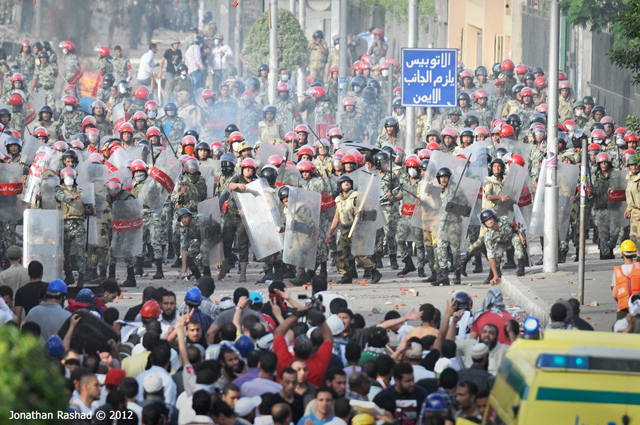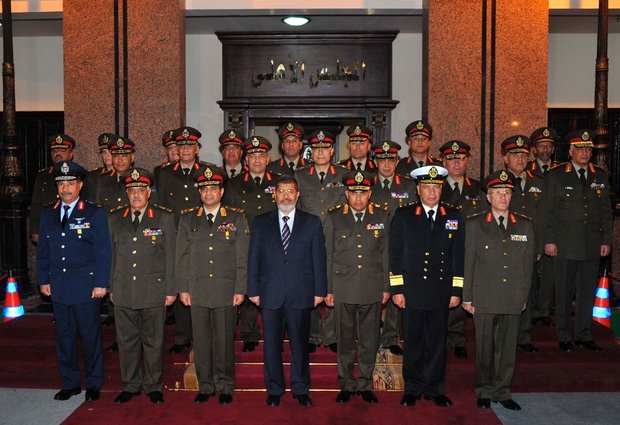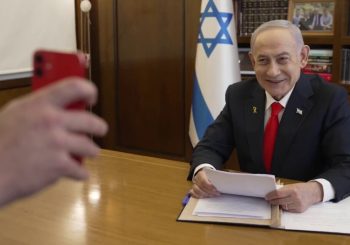
Egypt’s Presidency has condemned recent publication of leaked reports by The Guardian which claimed that Egypt’s Armed Forces participated in kidnappings, torture, and killings during the 2011 revolution.
The report was formed by a committee that was hand-picked by President Morsi in January and is yet to be made publicly available. The findings include, but are not limited to:
- During the 18-days of revolution in 2011, citizens were detained, tortured, and in some cases kidnapped by the Military. Numerous civilians disappeared only to have their bodies found several weeks later at morgues across the country, after reportedly being delivered there by Military personnel. Many of the dead were found to have been severely tortured.
- Protesters were detained by the Military and tortured in the basement of the Egyptian Museum near Tahrir Square, and forced to confess to crimes. Many of those tortured were then either released or taken to Military prisons.
- Those killed during their detention by the Military were often buried in indigent graves due to difficulties in identifying who they were.
- During the protests against the Military’s rule following the revolution, doctors were ordered to operate without anaesthetic on the wounded protesters at Military hospitals. Moreover, “military doctors, soldiers and medics inside the hospital assaulted protesters by severely beating them and verbally assaulting them.”
- Civilian thugs (baltagiya) were hired by the Military to infiltrate, disrupt and harm protesters. The thugs were almost always operating under army commands.
- [NEW as of 3:59PM local time] Egypt’s police in Suez fired indiscriminately at crowds from the roof of a police station. Police officers were given the order to use live ammunition to disperese large gatherings leading to 24 deaths.

Despite these scathing remarks – and the fact that the report comes from a committee formed by President Morsi – the President yesterday declared that the leaks are a “part of a campaign against Egypt’s Armed Forces” and strongly condemned the report. In a press conference following a meeting with Egypt’s top military officers, President Morsi denounced attempts to tarnish the Military’s image.
On the same day, President Morsi promoted several leading Military officials in an effort to “thaw the recently strained relationship between the army and the Presidency.” According to committee members, the report 1,000 page report was presented to the President in late January, but has so far not been released to the public. The Presidency responded stating that “The President has not received or read the report and that the matter is still being investigated by the Prosecutor-General.”

Military officials yesterday responded to the claims, stating that “certain groups of people are behind this leak,” and “the report only relies on the stories made up by people against the Military and not any evidence.”
The Military officials also added, “The Supreme Council of Armed Forces supported the revolution and fulfilled its promise of handing over power to an elected President. It was the council’s job to protect Egypt and its people during the short transitional period which led to 58 martyrs from the Military and hundreds more injured.”
Nevertheless, despite the condemnations by both the Presidency and the Military, the report is real and was in fact presented to both the President and the Prosecutor General. It remains to be seen why the President has condemned the leaks, and whether or not any real investigation will be carried out.
[This article was updated at 4:05PM Local Time]







Comments (2)
Reblogged this on TheSlashDash.
Reblogged this on Oyia Brown.